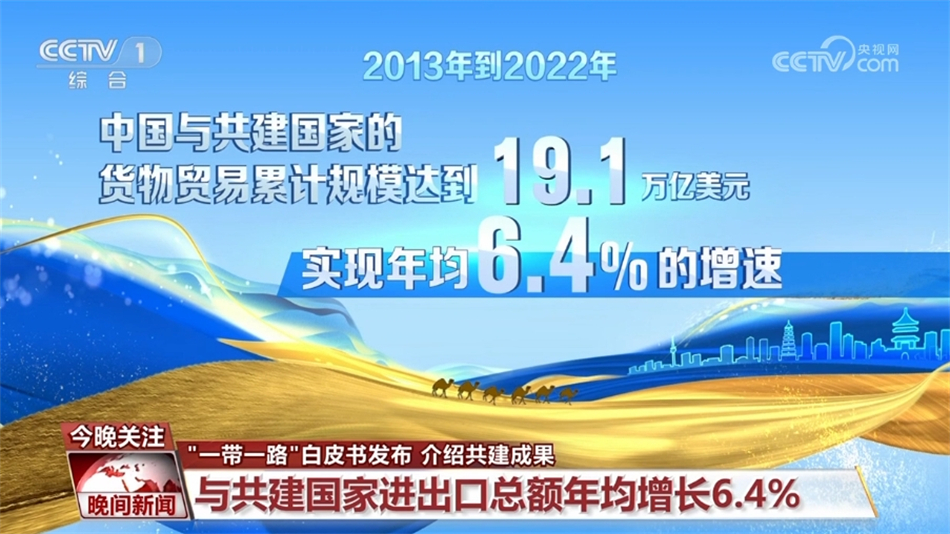God Predicts! China’s Plan Three Years Ago Is Now Working. Poland Miscalculated And Became A Wedding Dress For The EU.
God Predicts! China’s Plan Three Years Ago Is Now Working. Poland Miscalculated And Became A Wedding Dress For The EU.
Politicians in Warsaw probably couldn't figure it out. They thought that by grabbing the "throat" of China-EU trade, they could use it to flex their muscles on the international stage. But instead of making China surrender, they were hit with a "boomerang" that knocked them dizzy.
Politicians in Warsaw probably couldn't figure it out. They thought that by squeezing the "throat" of China-EU trade, they could use it to flex their muscles on the international stage. However, instead of convincing China, they were hit with a "boomerang" that knocked them dizzy. They also made a gorgeous "wedding dress" for other EU countries, especially the United Kingdom across the sea.
In fact, Beijing had quietly written the script for this drama as early as three years ago.

In mid-September on the plains of Eastern Europe, autumn is blooming, but the freight drivers on the China-Europe trains feel chilly. On September 12, the Polish government announced without warning that it would indefinitely close all border crossings with Belarus on the grounds that "national security is threatened."
The reason sounds high-sounding: Russia and Belarus are conducting joint military exercises, and a drone "accidentally" flew into Polish airspace. It sounds like that, but everyone knows that Russia and Belarus' "Western" series of military exercises are routine projects held every year. The exercises ended on September 16, but Poland's iron gate has no intention of reopening.

This hurdle directly caused more than 300 "steel camel convoys" loaded with electronic products, auto parts and textiles to be blocked in Belarus, and they were in a dilemma. Behind these goods are trade contracts with a total value of more than 25 billion euros. They are Europe's anxious wait to prepare for the Christmas season, and they are the lifeblood of thousands of companies. The daily direct economic losses are calculated in tens of millions of euros.
This is obviously not a simple security emergency response, but a naked political gamble. Poland’s calculations are very shrewd: Don’t you all say that China-Europe freight trains are the main artery of the “One Belt, One Road” initiative? I will perform a "heart bypass surgery" on you now to see if you feel any pain. They want to use this railway as a bargaining chip to force China to put pressure on Russia, and at the same time show loyalty to Washington and Brussels, proving that they are "the most reliable barrier on NATO's eastern flank."

Faced with this almost face-breaking move, China responded quickly and professionally. On September 15, Foreign Minister Wang Yi flew to Warsaw in person and held a three-hour meeting with the President and Foreign Minister of Poland. The core of the conversation was clear: the China-Europe freight train is a mutually beneficial and win-win project and the "touchstone" of China-Poland cooperation. The Polish side also made a commitment on the spot. In the joint communique after the meeting, it was written in black and white: "We will jointly ensure the safe and smooth flow of China-Europe freight trains."
Everyone thought that this matter would just go away. After all, the annual transit fee of 200 million euros is not a small amount of money for anyone. But no one expected that before the ink on this guarantee letter was dry, within 72 hours, Poland would slap itself in the face. On September 18, Warsaw once again reiterated that the border will remain closed until the "security threat" is completely eliminated.

At this moment, everyone understood. Poland is not worried about security, it is just "acting rogue". It firmly believes that China cannot do without this land channel, and European cargo owners will put pressure on China. In the end, Beijing will have to make concessions on other geopolitical issues in order to restore trade.
Poland completely miscalculated. They overestimated their geographical location and seriously underestimated China's preparations in the past few years to deal with today's situation.
The emergence of "Plan B": the foreshadowing laid three years ago

Set the time back to three years ago, when the Russia-Ukraine conflict broke out in 2022. While the world's attention is focused on the war in Ukraine, Beijing's strategic planners are already seeing deeper risks. Although the China-Europe Railway Express, a passage across the Eurasian continent, is efficient and convenient, its greatest vulnerability lies in the fact that it must pass through geopolitical "minefields." Especially Poland, as Ukraine's "iron ally" and NATO's "anti-Russian vanguard", it will definitely use this railway as a political tool at some point in the future.
Preparing for a rainy day has always been a wisdom engraved in the bones of the Chinese people. Rather than waiting until someone gets stuck and then scrambling, it is better to open up a new path in advance. As a result, a seemingly distant but highly strategic plan was quietly put on the agenda - the development of Arctic waterways.

This plan sounded a bit fanciful at the time. In the Arctic, with thousands of miles of ice and harsh climate, commercial shipping sounds like a fantasy. However, with global warming and Arctic ice melting year by year, the "window period" for summer navigation is getting longer and longer. More importantly, Russia has the world's largest fleet of nuclear-powered icebreakers, and they are eager to commercialize this waterway to break the West's monopoly on traditional shipping routes.
China and Russia hit it off immediately. In the past three years, when we saw in the news that the "Snow Dragon" went to the Arctic for scientific expeditions again and again, it carried more than just scientific exploration tasks. It was surveying hydrology, mapping ice, testing shipping lanes, and paving every inch of the way for today’s first commercial voyages.
So, on September 22, less than a week after Poland announced that it would continue to close its borders, a container ship named "Istanbul Bridge" was loaded at Ningbo Zhoushan Port, whistled and set sail. Its destination is the Port of Flixstowe in the UK, and the route it chooses is the Arctic Northeast Passage that crosses the Bering Strait and heads west along the northern coastline of Russia.

This marks the official launch of the world’s first China-Europe Arctic container express route.
The emergence of this route is tantamount to drawing money from the bottom of the cauldron for Poland. The biggest advantage of China-Europe trains is "speed". It can reach Europe in 25 days by land transportation. But what about this Arctic route? The one-way trip only takes 18 days, which is a week faster than the train! Not to mention that it saves a full 22 days compared to the traditional shipping route around the Suez Canal and reduces carbon emissions by 50%.
For those time-sensitive high value-added cargoes, the Arctic sea route is not only an alternative, but even a better choice. Poland thought it had a trump card, but China directly changed the deck of cards and played a "king bomb" that they had never seen before.
Shooting stones in the foot: Who is the real loser?

Polish politicians may still be waiting for China to send people for secondary negotiations, and for EU entrepreneurs to cry out and put pressure on them. But what they were waiting for was increasingly empty cargo yards in their domestic logistics parks and angry protests from unemployed workers.
Malaszewicz, a place that transformed from an agricultural town to a core European logistics hub thanks to the China-Europe freight trains, is now facing an unprecedented depression. In the past ten years, the throughput here has increased sevenfold, creating more than 20 surrounding logistics companies and tens of thousands of jobs. Now, if the train doesn't come, everything is in vain. The local chamber of commerce estimates that for every day of port closure, direct economic losses exceed 12 million euros.

What makes Poland even more uncomfortable is that it personally smashed its golden sign as a "logistics hub". What is the most important thing in international trade? It's stability and predictability. Poland's arbitrary political maneuvering has left all companies that rely on this line with lingering fears. Even if the port reopens tomorrow, everyone will have a question in their mind: Will this happen again next time?
Capital and goods are both profit-seeking and the most risk-averse. When one path becomes unreliable, they naturally flow to safer, more stable channels. China’s layout goes far beyond the Arctic waterway as an alternative route. The "Middle Corridor" that passes through Kazakhstan, crosses the Caspian Sea, and enters southern Europe through Azerbaijan and Türkiye has seen a surge in traffic volume in recent years. The China-Kyrgyzstan-Uzbekistan Railway has also broken ground. China's strategy is clear: never put all its eggs in one basket.
The turmoil in Poland has objectively accelerated the process of diversifying China's logistics channels. It used its credibility and economic losses to make the most effective global promotion of China's "Plan B".

The most ironic part of this drama is not Poland’s miscalculation, but the role it inadvertently played. It originally wanted to use this operation to claim credit within NATO and the EU and consolidate its status as a "frontline country." The result?
The Arctic route was opened, and the first major European port of call was Flixstowe in the United Kingdom. After Brexit, the UK has been trying to find a new position in international trade and bypass the EU's bureaucracy. This new direct route to China is a godsend for the UK. Poland's blockade is equivalent to sending part of the goods that were originally intended to enter the hinterland of the EU directly to the door of the United Kingdom.
For traditional shipping powers such as Germany and the Netherlands, the maturity of the Arctic route also means new opportunities. Their ports, such as Hamburg and Rotterdam, will become important nodes for new routes.
Poland wanted to score points geopolitically, but ended up giving a big gift to its European neighbors economically. It has endured all the negative consequences of the blockade—economic losses, credibility bankruptcy, and intensification of domestic conflicts. However, the targets it wants to contain have opened up a wider world; the allies it wants to please quietly share the dividends brought by its "death-seeking".
Isn’t this the modern version of “making wedding clothes for others”?
While politicians in Warsaw are still struggling with the rhetoric of "security threats," perhaps they should look up and take a look at the shipping lanes over the Arctic Ocean. The world is no longer an era where one can control the overall situation by relying on a single geographical pass. The true power of a country lies not in how many roads it can block, but in how many roads it can open.
Poland did not lose unjustly this time.





